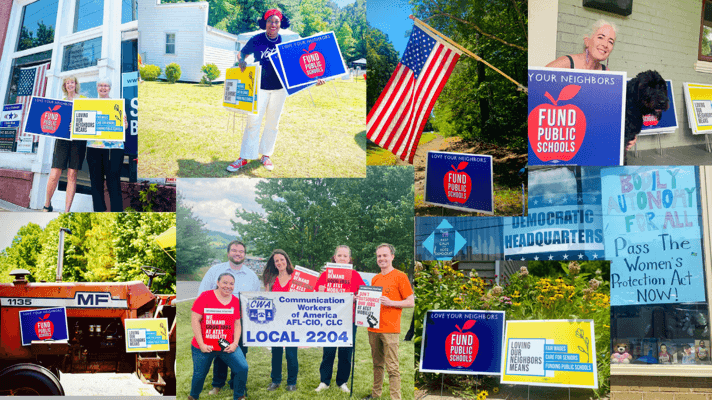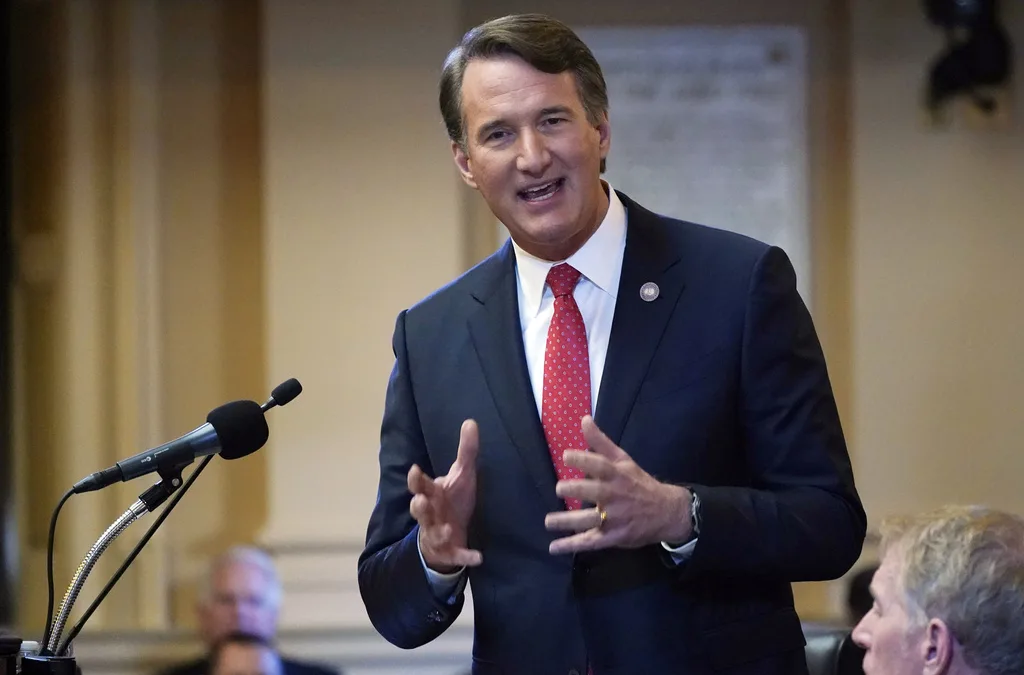
Credit: Rural GroundGame
“Many of the things rural people are struggling with in the cities and suburbs are very similar to the struggles of rural people and we are often falsely pitted against each other.”
For the longest time, urban and suburban areas got more electoral focus, with rural areas in Virginia–and across the country–being left out. This isn’t viable anymore, and since its inception in 2019, Rural GroundGame, a grassroots, community-centered organization, has stepped in to help.
The organization was formed as a response to a need to support Democrats running in rural regions, and to “prevent the further decline of the Democratic image in rural Virginia.”
The Rural GroundGame team has worked with local and national organizations, using data-driven methods to help develop a model to get rural voters more engaged.
Political Director Lynlee Thorne gave Dogwood a better insight into what the organization does, and how they’re out to help mobilize as many people as they can using a diverse coalition with community members, groups, leaders, and organizations to bring about awareness.
The following Q&A has been edited for clarity.
DW: Is anything gained by helping voters in rural areas become more engaged with the current election cycle?
LT: Yes, of course! People deserve to be heard, to have the reality of their lives validated and seen by those who make decisions on their behalf. It should weigh heavily on us all to know that far too many people do not feel like their participation matters. The health and validity of our democracy are improved when more people in every community take part.
Dogwood: What has prevented people in more rural areas from knowing about their elected officials, or who’s running for office?
Lynlee Thorne: For local offices, I think many rural people do know who their elected officials are. There is often, but not always, more access and interaction with local officials than in more densely populated areas. In higher-level offices like the General Assembly and Congress, that access tends to drop off quite steeply with much of the “outreach” tending to be limited to exclusive partisan events and business-centered engagements rather than broader community outreach and responsiveness from those elected officials.
It seems that the GOP does a decent job of maintaining communication and updates with their base while we often experience extended gaps in communication which can lead to a lack of awareness about what incumbents are up to and when we do have Democrats running in tough districts, it can be enormously challenging to secure adequate resources to connect with voters and generate that awareness.
DW: How has Rural GroundGame helped inform voters, as well as reach out to them since its inception?
LT: Our start was very much centered around campaigns, and in that space, our primary focus has been a targeted, multi-layered outreach to community through both traditional voter contact methods in addition to engagement that might not be considered effective in metro areas but has an outsized impact in rural areas.
DW: How has the mission of Rural GroundGame strengthened since its inception?
LT: Democrats do not simply have a “messaging” problem in rural areas. We have a relationship problem and one of the many impacts of that loss of connection has been that our messaging is also out of touch. Our experiences have pushed us to expand the vision of our work and place greater emphasis on sustained, year round engagement and a whole lot more listening.
DW: Has there been an increase in voter participation in the rural areas since the org’s inception?
LT: Overall, yes. We were not in a position to offer the same level of support to 2021 campaigns that we offered in 2019 when our candidates saw significant electoral gains in their districts as compared to similar districts outside of our cohort. It continues to be a struggle to convince progressives that this is work worth investing in but we stay hopeful as we have started to see a shift in that thinking. It means everything to have people like Sen. Jennifer McClellan and Rep. Gerry Connolly acknowledge the need for these efforts and make direct investments in it.
DW: Why is it important to have a community-centered platform?
LT: The purpose of electoral organizing should be one that seeks to convey the concerns, ideas, and aspirations of communities to those in power. There are no shortcuts to earning a grasp of that information and too many people, maybe even most, simply do not have the time or resources to access groups or elected officials. We have a long way to go in terms of the scope of our outreach and as we do that, it is important that we continue to have community connections to inform our work and approach.
DW: What makes the more rural regions of Virginia different from other parts?
LT: It can feel like we have a collective disconnect from rural communities. With the many losses of local journalism and a lot of media representation being either centered on metro areas or dismissive stereotypes when rural communities are mentioned, I’m not sure many people have a real picture of what rural life is like right now. Our communities offer up the resources and labor that make life in the cities and suburbs possible but that’s not something we tend to show much appreciation for.
DW: Why is it important to reach out to those communities in particular?
LT: We can’t live without them. Many of the things rural people are struggling with in the cities and suburbs are very similar to the struggles of rural people and we are often falsely pitted against each other. As we tackle very serious challenges related to climate change, we can not continue to leave rural communities out of the conversation. Rural land use, farming practices, manufacturing and installation of renewable energy infrastructure and the corporate greed creating obstacles for workers and innovation require the input of rural people. Progressive policy objectives will fail without a significant effort to be more inclusive of rural people.
DW: How has the RGG team been gearing up for this year’s Congressional election?
LT: We are finalizing our independent expenditures for Congressional races and working with local committees to encourage Democrats to vote early in addition to multiple projects related to direct voter contact and communication.
Politics

Opinion: The problem with Youngkin’s Charter-Lab schools push in 2024
The Problem Governor Glenn Youngkin introduced 233 amendments to the bipartisan budget so it was hard to know how to assess his budget–for example,...

What to know about Trump’s legal issues
Over the past year, former president Donald Trump has become the center of not one, not two, not three, but four criminal investigations, at both...
Local News

Virginia verses: Celebrating 5 poetic icons for National Poetry Month
There’s no shortage of great writers when it comes to our commonwealth. From the haunting verses of Edgar Allan Poe, who found solace in Richmond's...

Join the fun: Recapping Family Literacy Night’s storybook adventures
When’s the last time you read a book aloud with a loved one? If it’s difficult to answer that question, then maybe it’s time to dust off that TBR...





